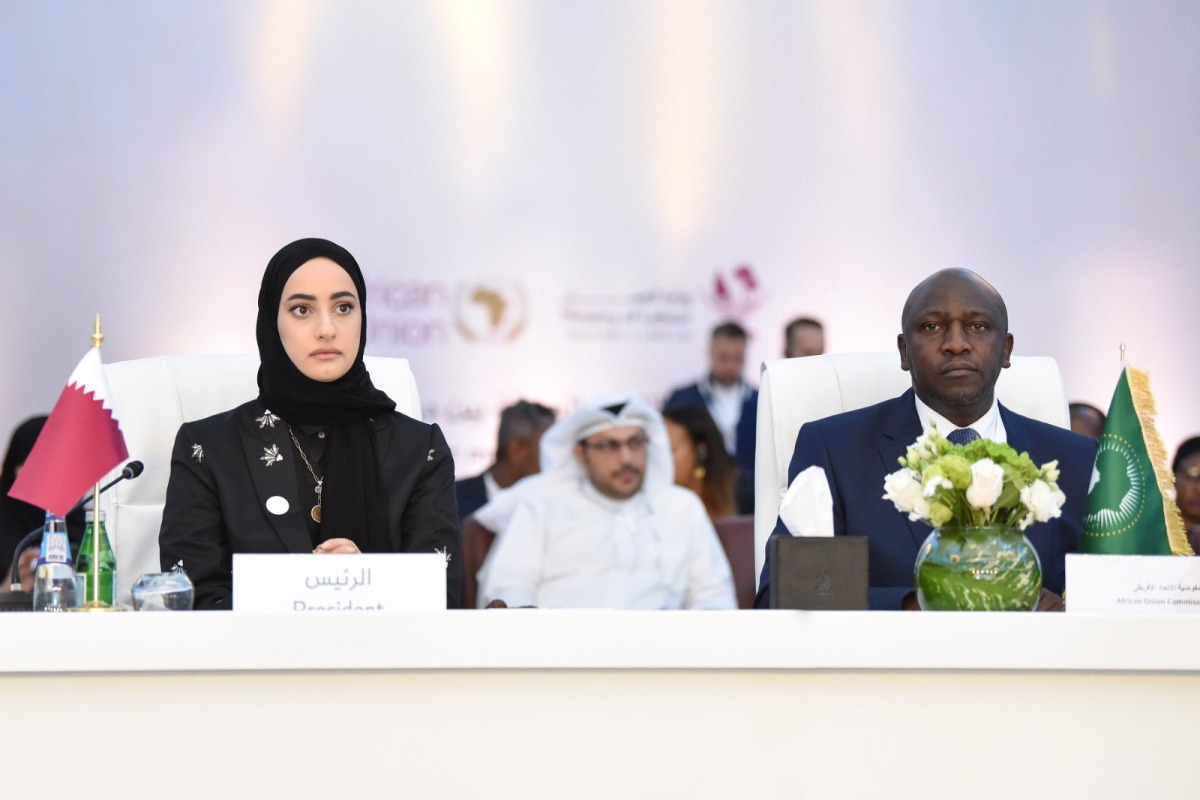The recent preparatory meetings for the Doha Dialogue on Labour Mobility between Gulf and African Countries brought together representatives from 33 countries, including GCC, Jordan, Lebanon, and 25 African nations. Chaired by Sheikha Najwa bint Abdulrahman Al Thani, the Assistant Undersecretary for Migrant Labour Affairs at the Ministry of Labour, the technical committee meeting aimed to promote collaboration among nations to enhance expatriate labour and achieve development goals through a coordinated approach. The dialogue provides a platform for exchanging ideas and experiences to enhance regional cooperation efforts and partnerships for mutual benefit.
Sheikha Najwa emphasized the importance of the agreement between the participating countries in launching the Doha Dialogue, highlighting the positive contribution of expatriate labour to sustainable development goals. She noted that GCC states, Jordan, and Lebanon have taken significant steps at the national level to align with international efforts in terms of labour mobility, introducing various legislative measures and reforms to protect expatriate workers and enhance their mobility in the labour market. The ultimate goal is to strengthen the protection of expatriate labour through collective efforts and a coordinated approach.
Angela Martins, Head of the Department of Social Development, Culture and Sports at the African Union Commission, highlighted the factors contributing to labour mobility from Africa to the Gulf countries. She noted that African expatriate workers account for 12% of the total number of expatriate workers in the GCC and emphasized the importance of providing better economic opportunities for African workers. With expectations that this number will continue to rise, it is crucial for countries to work together to ensure the protection and mobility of expatriate labour.
Khalil Hazza, the Director of the Labour Affairs Department at the Executive Office of the GCC Ministers of Labour and Social Affairs, underscored the significance of the first edition of the Doha Dialogue. He highlighted the various challenges faced by the world, including rapid technological changes, economic transformations, climate change, and other factors impacting labour markets and labour mobility. The dialogue provides a timely opportunity for countries to come together to address these challenges and foster cooperation in the realm of expatriate labour.
The Doha Dialogue on Labour Mobility aims to create a platform for dialogue and exchange of best practices among participating countries to enhance regional cooperation efforts and partnerships. The dialogue serves as a mechanism for countries to collaborate on improving the protection and mobility of expatriate labour, ultimately contributing to sustainable development goals. By aligning with international efforts and introducing legislative measures and reforms, countries can effectively address the challenges facing labour markets and labour mobility in the current global landscape.
In conclusion, the Doha Dialogue on Labour Mobility between Gulf and African Countries represents a significant step towards promoting collaboration among nations to enhance expatriate labour and achieve development goals. Through dialogue, exchange of ideas, and cooperation, countries can work together to address the challenges facing labour markets and labour mobility in the current global environment. The participation of 33 countries, including GCC, Jordan, Lebanon, and 25 African nations, underscores the importance of collective efforts and a coordinated approach to protecting and enhancing the mobility of expatriate labour for mutual benefit.







